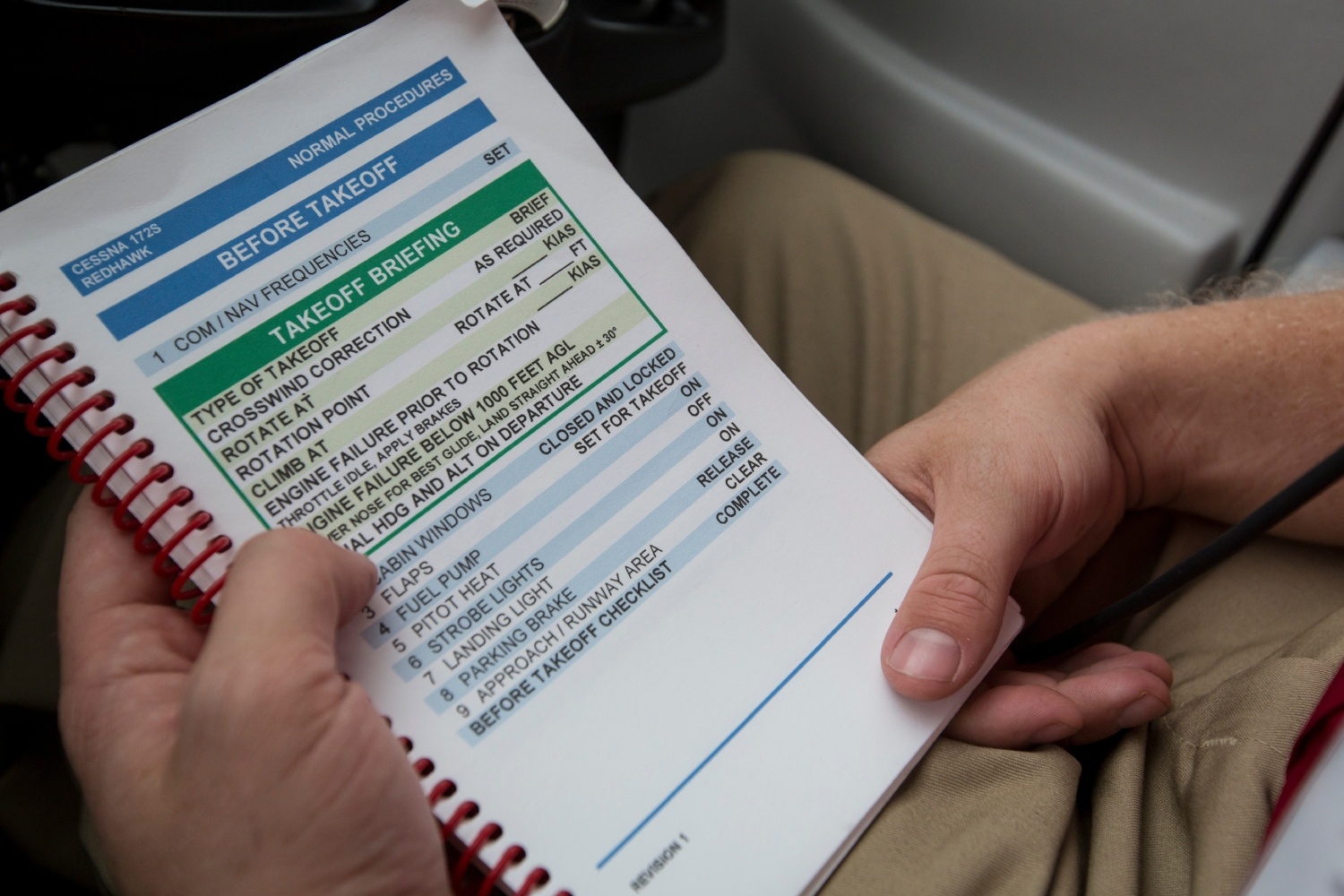4 Helpful Tips to Prepare for Your First Solo Flight
Preparation for the solo stage of your flight training starts with your first flight lesson and continues up until the moment your flight instructor decides today is the day. As you inch closer to flying alone in the aircraft, how can you get ready for a successful flight alone while keeping your stress level under control?
1. Practice your flight on the ground
Usually, stress is more prominent when we are unprepared or ill-prepared. You can get yourself ready for your first solo by reviewing and rehearsing the lessons leading up to the solo stage. This includes working on your muscle memory, which is an inherent trait of safe, competent pilots. Rather than "thinking and doing," muscle memory allows you to skip directly to the "doing" stage in response to a particular condition or situation.
Use a flight simulator
Muscle memory can only be accomplished with repetitive practice in various scenarios. If your flight school has a flight simulator available, part of the curriculum undoubtedly will include simulated emergency procedures, which will hone your muscle memory in a safe, controlled manner. Leading up to your first solo, flight simulation is an engaging way to build your proficiency and confidence in the left seat.
Whether it's at home or in your flight school's professional flight simulator, practice running your various checklists and flows in the simulated world. Perform specific tasks that you are nervous about, such as takeoffs, landings, stalls, or entering the traffic pattern. Practicing your go-arounds in the simulator is a great way to prepare for you solo as well. If your approach during your flight does not seem stabilized, or something just doesn’t seem quite right, simply go-around. A good landing is never forced.
Chair fly
As you near your solo, you also can visualize the flight in your mind and ‘faux fly’ all the stages from the comfort of your favorite easy chair. This is sometimes referred to as "chair flying."
While you visualize your flight, think through your checklists and responsibilities as the pilot in command of the aircraft—just as you would in the flight simulator or the airplane. Review all the basics, including airspeeds, procedures, radio calls to air traffic controllers, making a full-stop landing, and the like.
Consider the differences you'll experience during your first solo as well. Most notably, up until the point of your solo, you’ve had the weight of your instructor in your co-pilot seat. When your CFI decides to turn you loose on your own, the airplane will perform in ways that you have never experienced or thought imaginable. This will be evident from the shorter takeoff roll to the climb performance that you only thought possible from a SpaceX vehicle. Be ready for the exhilaration.
2. Trust your progress
Knowing that you are capable of safely flying the airplane will ease your anxiety as you inch your way toward the solo stage. Undoubtedly, when you first attempted to control the airplane, you could sense your flight instructor being ready to take control at any given moment (which he/she most likely did). As you progress in your aviation training, you will notice how that occurs less frequently.
Your instructor will not sign you off to solo until he/she feels very confident that you are ready. Since your state of readiness can vary from day to day and flight-to-flight, many instructors will not indicate the date in which your solo will take place. It can seem like a spur of the moment decision, but it is anything but that.
By the time you are approaching your first solo, you should feel comfortable with your instructor and confident in his/her judgment. You're only getting the go-ahead if you've proven that you are ready for it.
3. Confront your anxiety
Even if your instructor doesn’t set a date for your first solo, you may develop a ‘spidey sense’ right before you get signed off for it. You know when you've been good and bad in the cockpit. As such, you may sense your impending solo a flight or two before it happens and feel your anxiety start to build.
If that’s the case, try to manage your nervousness. One common tactic that can help settle the nerves is simply admitting to yourself that you are anxious, and slowly and methodically trying to replace those nervous thoughts with positive ones. Deep breathing exercises also are useful when you feel the stress start to build up.
Regardless of the methods that you use, confronting and trying to control your nervousness leading up to your flight—rather than denying or ignoring it—will help you avoid unexpected and unwanted anxiety when you first step into the cockpit alone.
4. Give your brain a break
You already know the material. Keeping your mind fresh should take priority over last-minute studying.
Don't try to over-prepare
You should only “walk through” procedures to build your muscle memory and keep the material fresh. That means no heavy-duty thinking. When you’re practicing at your flight school or at home, let your mind simmer on low and let the repitition do the work.
Sleep!
Your all-nighter, cramming-for-a-test days are over. As you near the typical solo time (12-25 hours of dual), it's crucial to get quality sleep the night before each of your flight lessons. This is good advice whenever you are taking to the skies, whether it’s before or after your first solo. A well-rested pilot is a safer, more prepared pilot.
Prevent unnecessary stress
Have everything prepared the night before your flight lessons. That may include completing tasks as important as packing your flight bag and as unimportant as picking out what you’re going to wear (hopefully you lose that shirttail anyways).
As every proficient pilot knows, sound aeronautical decision-making extends well beyond the confines of an aircraft. Rushing through your routine can create chaos. Eliminate the chaos by eliminating the rushing.
As you step into the aircraft alone for the first time, exercise good judgment and remember to relax and enjoy a moment that few men and women experience in a lifetime. Today, you are a pilot. Now, go get some more sleep.
Share this
You May Also Like
These Related Articles

6 Flight School Scholarships to Kickstart Your Training

The Essential Questions You Need to be Asking Every Flight School

